From the Ruins of Empire: The Revolt Against the West and the Remaking of Asia
£9.40£10.40 (-10%)
Pankaj Mishra’s provocative account of how China, India and the Muslim World are remaking the world in their own image – shortlisted for the Orwell Prize 2013
SHORTLISTED FOR THE ORWELL PRIZE 2013
Viewed in the West as a time of self-confident progress, the Victorian period was experienced by Asians as a catastrophe. As the British gunned down the last heirs to the Mughal Empire or burned down the Summer Palace in Beijing, it was clear that for Asia to recover a new way of thinking was needed. Pankaj Mishra re-tells the history of the past two centuries, showing how a remarkable, disparate group of thinkers, journalists, radicals and charismatics emerged from the ruins of empire to create an unstoppable Asian renaissance, one whose ideas lie behind everything from the Chinese Communist Party to the Muslim Brotherhood, and have made our world what it is today.
Reviews:
‘Arrestingly original … this penetrating and disquieting book should be on the reading list of anybody who wants to understand where we are today’ John Gray, Independent
‘A riveting account that makes new and illuminating connections … deeply entertaining and deeply humane’ Hisham Matar
‘Fascinating … a rich and genuinely thought-provoking book’ Noel Malcolm, Sunday Telegraph
‘Provocative, shaming and convincing’ Michael Binyon, The Times
‘Lively … engaging … retains the power to shock’ Mark Mazower, Financial Times
‘Subtle, erudite and entertaining’ Economist, New Delhi
About the author:
Pankaj Mishra is the author of Butter Chicken in Ludiana, The Romantics, An End to Suffering and Temptations of the West. He writes principally for the Guardian, The New York Times, London Review of Books and New York Review of Books. He lives in London, Shimla and New York.
Read more
Additional information
| Publisher | Penguin (6 Jun. 2013) |
|---|---|
| Language | English |
| Paperback | 368 pages |
| ISBN-10 | 9780241954669 |
| ISBN-13 | 978-0241954669 |
| Dimensions | 12.9 x 2.1 x 19.8 cm |

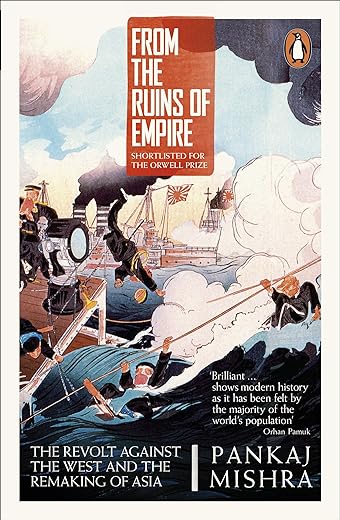

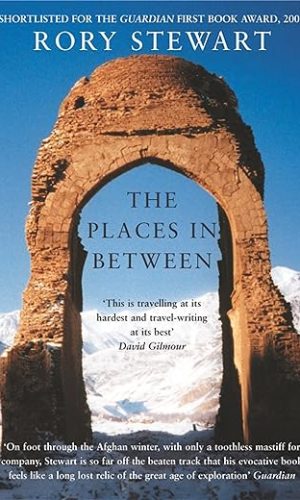
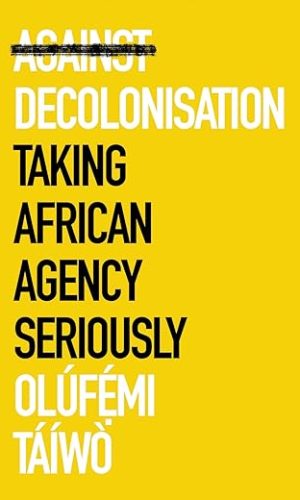
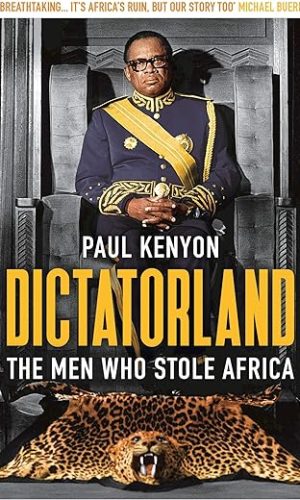
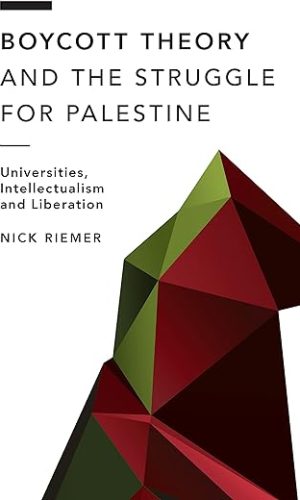
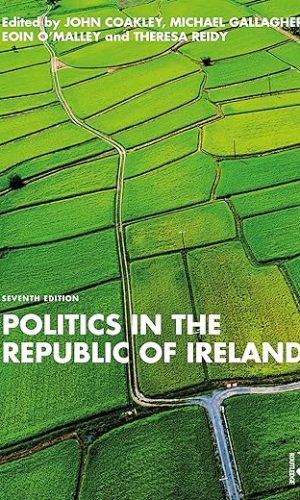

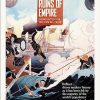
by kevan rudling
Having read and enjoyed The Age of Anger I looked forward to this book with high expectation and was not wholly disappointed. It is a good read; interesting, provocative and instructive in parts. However throughout Mishra furiously waves his Romantic prejudices and that does get a bit tedious but I give it five stars nonetheless if only for it’s manifest, unabashed one-sidedness spares the reader from wasting too much time worrying about the narrative’s historical fidelity.
Writing history is a rather like playing with Leggo, there is an assortment of historical Leggo facts and these can be assembled in a myriad of ways. As in Leggo the builder has a structure in mind and assembles his pieces, emphasizing this feature while disparaging others, as suits his purpose. In this regard Mishra’s narrative is anything but subtle; a reader needs to believe the author is being even-handed, that he doesn’t have an axe to grind and Mishra spectacularly fails to do this as attested to in the other reviews, moreover his largely unqualified counterfactual in suggesting that everything would have been much better if … merely serve to highlight the purposeful nature of Mishra’s thesis viz an East oppressed and corrupted by a rapacious and evil West. The truth, as ever, is far more nuanced than Mishra’s bipolar account, in effect we are, by nature, given the means and opportunity . as bad as each other.
When writing a history having a preconceived notion before assembling the facts is of course a natural precondition but if the facts have to be so highly contorted in order to fit together as in Mishra’s thesis then the resulting structure, while perhaps novel and entertaining, has little academic worth other than reminding the reader that while Asia has evolved Islam remains a basket case wherever it prevails and little has changed in the Muslim outlook from the days of al- Afghani and the Mahdi aka Muhammad Ahmad.
Mishra’s dreamy people’s utopia is just that; in reality, Western Capitalism is ultimately a destructive and decadent enterprise only marginally less so than Communism, Nationalism and Islamism.
by And You May Find Yourself
This is a book worth reading, if only because it allows us to see the history of imperialism as experienced by its victims.
Mishra is interested in analysing the intellectual response to Western dominance in the various forms it took from Japan to Egypt. In doing so he gives historical depth to modern day phenomena such as the Taliban, the Iranian revolution, Ataturk, the transformations of Chinese Communism etc. He sometimes understates the complexity of the situation inside the subjugated countries (e.g. I found him weak on the Ottoman Empire, which the Arabs did not see as an Islamic state but as alien rule, just as the people of the Balkans did.) Having reached a triumphalist conclusion about the “revenge of the East”, however, he turns the tables on Asia, by pointing out that its liberation was achieved mostly by adopting Western ideas, and that Asia has so far failed to generate an alternative economic and social model – which is absolutely necessary in a world of finite resources.
by Jonathan
The style of writing made it a pleasant and easy read. Well researched too, gives a great overview of how anti-European colonial movements were inspired and worked within the systems created by European colonial powers. I particularly liked how the author managed to show how certain historic events served as inspirations for nationalist groups, and link them together. Some reviews mention he portrays an image that is purely negative of the West and overlooks many of the atrocities committed by various non-Western groups and governments. On the flip side, at least the book gives a focused and solid overview of nationalist movements and thinkers and how they managed to influence post-colonial societies.
by docread
The debate about the impact of European Imperialism of the last two centuries continues to exercise great fascination at a time of changing perceptions as the East edges towards economic, political even sporting parity with the West.Endeavours to survey the legacy of Imperialism are bound to rouse great passions as the protagonists on both sides of the divide, whether ardent apologists or despondent detractors, succumb alternatively to self righteous triumphalism or moral indignation.New vistas need to be opened by scholars to explore the complexities of this phenomenon, crucially important because of its historic global repercussions in the same way as the birth of Capitalism or the spread of Industrialisation.It is refreshing therefore to have an account which attempts to break down the partitions between the separate mental universes we inhabit, as defined by our cultural allegiances, and introduce different vantage points to help us examine the present in the light of the recent past
The originality of the scholarship lies in bringing together a number of remarkable Asian thinkers from far and disparate cultural traditions namely Islamic,Sinic/Confucian and Hindu and to chart their separate intellectual odyssey as they grappled with the challenges posed by Modernisation and the encroachments of Western hegemony on their societies.The three major peripatetic figures of Afghani, Liang Qichao and Tagore dominate the chronicle because of their pioneering political activism,their extensive influence on future thinkers as well as their fame in the West.However the author casts his net wide by introducing many other intellectual figures, not necessarily minor or peripheral, to broaden the scope of his investigation into the enormous intellectual ferment bubbling throughout Asia and the Middle East during the best part the 20th Century.These thinkers toyed with considerable variety of ideas ranging from Social Darwinism to revolutionary Marxism, from Pan Asianism to Pan Islamism,from rural primitivism to forced Industrialisation.
The text demonstrates the importance of some key historical events,mostly remote from European concerns, on the formation of these intellectual responses.From the Napoleonic expedition to Egypt and the capitulations imposed on Egypt and Turkey,to the Indian mutiny and the Opium wars. From the Russo-Japanese war to the Boxer rebellion, from the Paris Peace conference to Japanese militarism and Decolonisation.The author sketches the three main responses to Western power articulated by some of these thinkers; the conservative conviction of finding appropriate solutions by retreating into an idyllic rural past and being faithful to the religious traditions,views surprisingly shared by the Islamic Salafists and Gandhi;the compromise notion of borrowing a few Western techniques but keeping the indigenous core unchanged in a Nationalist framework and finally the radical secularist solution of imposing a cultural revolution from above and breaking free from the past,a philosophy adopted by the likes of Ataturk and Mao despite their ideological differences.The scheme may be a bit simplified but remains an interesting model.
Despite its generic approach,the occasional uncritical bias and the odd debatable commentary about contemporary events still unfolding,this is an original and relevant work of synthesis in part historical essay and in part intellectual biography which brings considerable insight into the modern origins of the non Western world of Asia and the Middle East.Because of the wealth and range of information it provides,that one would need to glean from a large library of specialist subjects ( see the bibliography),this book should potentially appeal to a wide readership in the West as well as the Asian countries concerned, as long as it is realised that it is mostly a historical survey rather than a work of penetrating intellectual analysis.